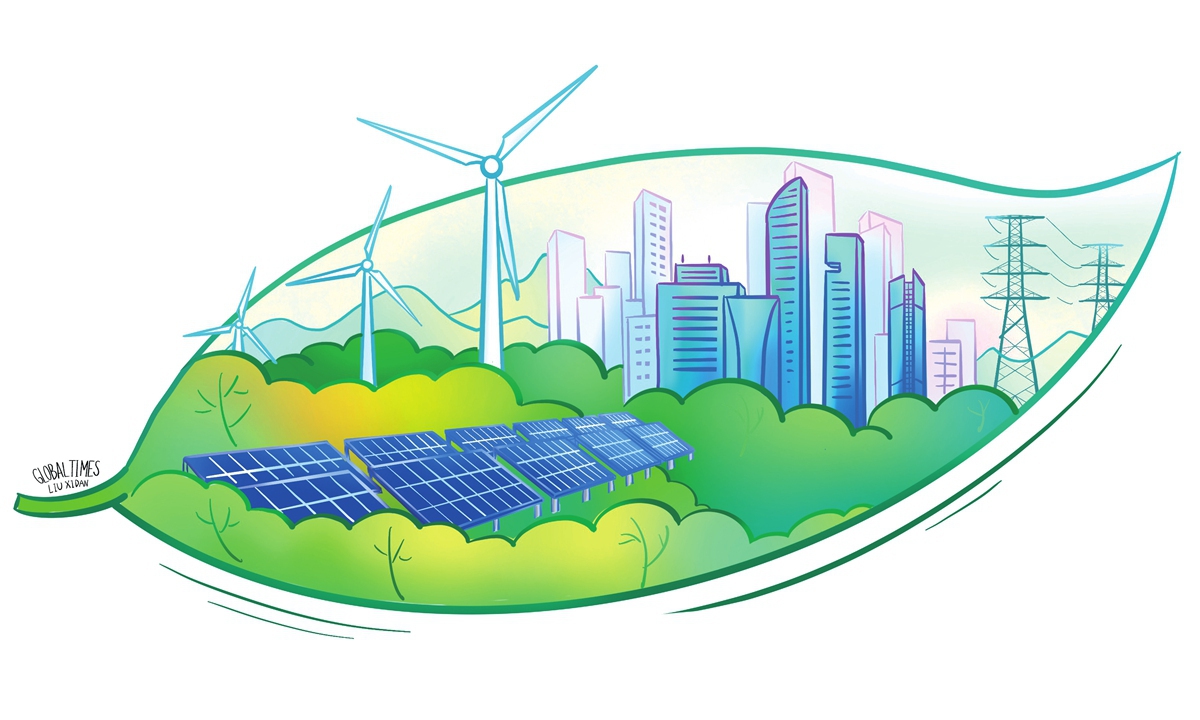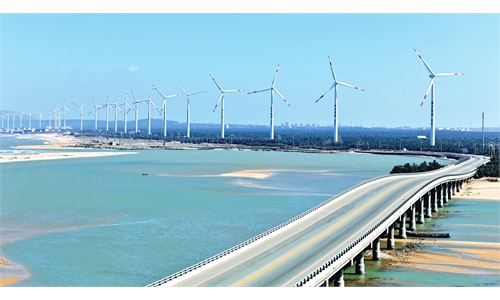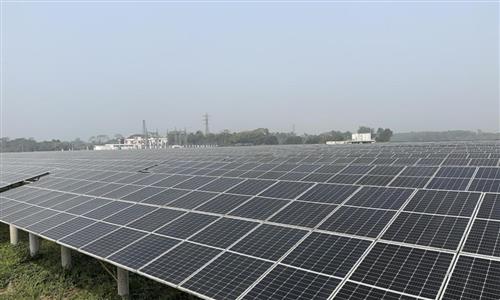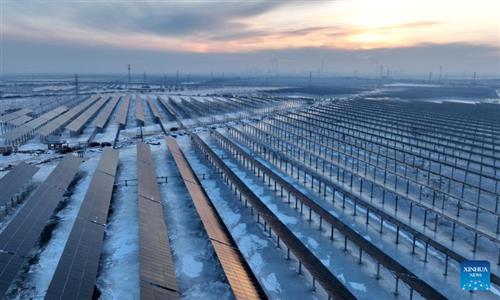China leads global fight on climate change through innovation, free trade, fair competition

Illustration: Liu Xidan/GT
In the first five months of 2024, China's BYD sold 1.27 million new-energy vehicles, a rise of an impressive 26.8 percent compared with a year earlier. Last year, BYD outpaced Tesla, taking the leader's position in the global electric car market by selling more than 3 million vehicles. It is worth noting that a slew of other Chinese EV companies, such as Geely, Chery, the Great Wall Motor, Li Auto, Xpeng and Nio, are also making rapid progress in the global EV market.Simultaneously, China is leading the world in driving the crucial energy transformation, including producing high-end solar panels, wind turbines and hydropower generators. Six of the seven most significant solar cell producers, are now run by Chinese companies.
The country's vision and courage to invest early and heavily on green renewable energy solutions, typically EV batteries, high-quality solar cells and wind turbines, and advanced high-speed train systems, have helped pave the foundation for its present-day edge in leading the green and renewable tech solutions in the world.
Increasingly, China's massive production capability in generating clean energy, offering high-quality EVs and other green goods at low prices, is helping other countries, the Global South developing countries in particular, develop their own renewables and propel their energy and manufacturing sector transformation.
By all metrics, China is championing the world's green transition with all-out endeavors. However, those developed countries, such as the US and the UK, responsible for more than 80 percent of the carbon dioxide emissions in the atmosphere are deficient in their actions. Fearing the growing competitiveness of Chinese companies, the Biden administration is imposing 100-percent tariffs on Chinese EVs in a typically protectionist trade move to resist China's clean products from the US.
Not long ago, the United Nations warned that the Earth - our living planet - is no long "warming" but "boiling" which could result in catastrophic human disasters in the coming years, if global carbon dioxide emissions are not curbed and the climate change is not effectively mitigated. The Paris Climate Agreement has called for resolute and concerted efforts to restrict greenhouse emissions to clean the atmosphere, but the US and a couple of its close allies has done too little to address the problem.
Global trade and economic fragmentation, orchestrated by the US' de-coupling and disintegration bid under the notorious "small courtyard but high fence" thought, has been proved to be a great threat to the world's efforts to replace traditional dirty fossil fuels with clean renewable energies. The current trade tensions and geo-economic calculation led by the US harm the chances of reaching the global climate control goals.
The US government officials' stubborn zero-sum mindset to slow and stymie China's economic growth is leading America astray, as shown by its undertaking of unilateral actions to restrict imports of Chinese renewables with exorbitantly high tariffs. But protectionism is the "dead end" for any economy, for it causes low efficiency and high inflation, as exemplified by the sticky price hikes in the US economic system now. The US' unilateral and protectionist policies are very likely to persist in the coming months, if not years, despite their adverse consequences on American energy security and the global fight against climate change.
And, given the complex workings of deeply interconnected global value chains, protectionist measures such as export bans, tariffs and subsides create uncertainty, which in turn will discourage investments. Protectionism also distorts business incentives, lead to supply chain bottlenecks, and skew the flow of essential inputs that could be detrimental to the world's cherished transition to clean renewable technologies.
In sharp contrast, Asia's green transition, led by China, is progressing very well. Many ASEAN countries, including Thailand, Vietnam, Indonesia and Malaysia, have seen their energy transitions gather pace, as Asia as a whole has ramped up efforts in developing clean, reliable and strategically important supply chains for critical mineral and new energy manufacturing.
Asia's green transition is also endowed with China's massive investment in renewable technology innovation, and the region's high-quality and skilled workforce. Also, a united front on green trade and investment is able to exert positive influence on the region's climate pledges. To unlock the massive economic potential from green energy transition, Asian policymakers are obliged to take coordinated and concerted measures to reduce business uncertainties, help manage regional social and governance risks, and support reforms that address supply-side constraints.
China's distinct position in industrial production and manufacturing capability will undoubtedly aid the global green transition. Chinese policymakers, in the past many years, have been calling for efforts to phase out traditional rundown industries by advancing in the quality and innovation of manufactured products. China's global role in the energy transition market can be exemplified by Brazil's production of renewable energy, which primarily uses tools made in China: Brazilian solar energy production multiplied 13-fold between 2017 and 2022, according to official data.
Currently, China is pursuing high-quality economic growth, highlighting that quality should prevail over quantity. In the foreseeable months and years, China's capacity in generating clean renewable energy, offering high-quality goods at low costs, will continue to help other countries develop their own clean energy production. It is true that a country cannot offer a decent standard of living for the population without developing the productive forces through constant innovation.
The author is an editor with the Global Times. bizopinion@globaltimes.com.cn



